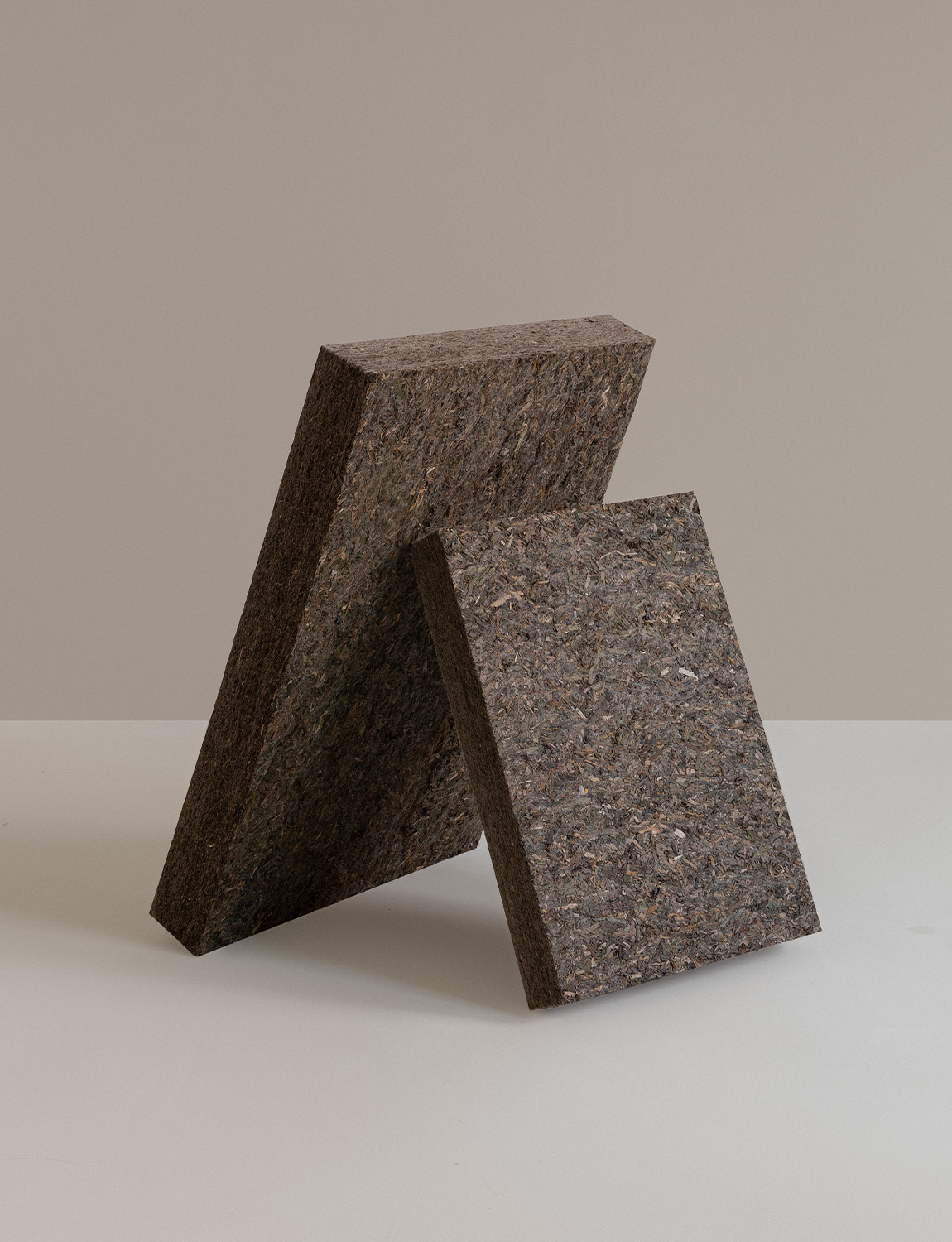Material
Søuld’s eelgrass products originate from the sea — a place you are never far from in Søuld’s native Denmark. The organic material embodies the same sense of calm provided by the sea and when taken indoors, it imbues living spaces with a restorative connection to nature.
AN OVERLOOKED RESOURCE — Eelgrass’s use in construction dates back to the 1600’s, when settlers of Læsø island would forge thick roof-thatching for their ‘seaweed houses’—a technique unseen anywhere else in the world. Enhanced through state-of-the-art technology, Søuld’s work represents a passionate reinvention of Denmark’s forgotten seaweed house heritage.
After a decade of research and development into the material, Søuld has emerged as an expert in eelgrass and is the first company to convert the material into CO₂-storing building materials (see full EPD here) that combine high acoustic performance, safety and durability with sustainability and modern aesthetics. Working together with local farmers, municipalities and ecologists, Søuld has optimized eelgrass collection based on environmental protection and the preservation of natural eelgrass meadows.
The CO₂-binding sea plant is found washed ashore along Denmark’s coastline as an abundant, renewable and overlooked local resource. The plant absorbs significant amounts of CO₂ while growing in the sea and therefore serves as a carbon sink when used in construction. (see full EPD here)
Søuld has demonstrated that this natural, non-toxic and CO₂-binding material has numerous inherent qualities as a modern building material: it provides excellent acoustic and thermal comfort, effective humidity regulation, long-term durability, high fire-resistance and low susceptibility to mould and bacteria due to its naturally high content of mineral salts.
Performance
At Søuld we engineer eelgrass — a natural material collected and processed in Denmark. The products improve indoor environments by enhancing restful acoustics, thermal comfort, air humidity levels as well as an appealing aesthetic expression. Our key performances are:
SOUND ABSORBING — The structure of Søuld is engineered to absorb sound across a wide range of frequencies, helping to create restful and productive atmospheres.
FIRE PROOFING — Eelgrass is naturally impregnated with minerals, which gives Søuld an imbedded fire protection. The eelgrass is also combined with a flame-retardant.
CARBON STORING — When eelgrass grows it stores large amounts of carbon. If it is left to decompose at shore, the CO2 will be released back into the atmosphere. By transforming it into a product, the CO₂ is stored in Søuld. Read our EPD



Production
Converting traditional and natural materials to suit the modern society takes time. Søuld spend over five years exploring various methods to transform eelgrass into a modern and useful material, still involving a local community of suppliers.
PRODUCTION PROCESS — By using an optimized formula for industrial-scale production the Søuld eelgrass mats meets market demands. Søuld is responsibly manufactured in Denmark with local partners who share the commitment to eco-friendly production. Søuld ensure the highest standards for emissions by collaborating with independent institutes and using only non-toxic materials.
Designed for full circularity and minimal environmental impact, the Søuld products prioritize both environmental and human health. Søuld hold partners to the same high standards and offer complete transparency about materials, processes, and the product life-cycle.



History
400 years ago the local population at the small Danish island Læsø utilised the natural eelgrass materials in a way that forms the basis of the Søuld products today.
THE HISTORY OF EELGRASS — When your resources are limited, you need to think creatively. Eelgrass as a building material was discovered already back in the 1660’s where it was used to construct the roofs for the local houses at Læsø. By using the harvested eelgrass, the local women developed a unique method to construct thatched roofs that were fireproof, waterproof, and insulating. Today, eelgrass has been re-discovered as a natural ressource, and new ways to naturally process the eelgrass has been uncovered.
Søuld
Office / Showroom
© Søuld. All Rights Reserved.



